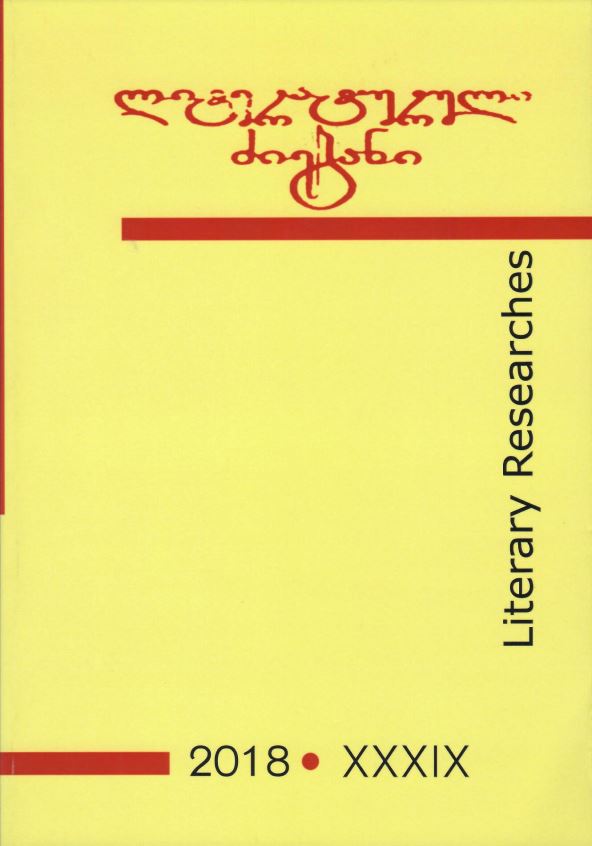გამოქვეყნებული 2018-12-20
საკვანძო სიტყვები
- Russian Modernism,
- Literary Position,
- Poetic Personality,
- The
როგორ უნდა ციტირება
ანოტაცია
The article substantiates the special quality of the poetry of Russian modernism. Pasternak understands poetry as a life-creation, but also a way of self-determination of the artist, a phenomenon of poetic personality. This artistic practice can be called the Russian poetry of existence, a special form of poetic. Pasternak’s literary position develops from the early poet’s individualism to the historical, cultural and moral experience of the poetic personality in the poems of Yuri Zhivago. The attempt to accept the empire, to justify the distorted reality destroys the poetic. The erroneous identification of the strategy of power and the Russian popular element contradicted the moral meaning of what was happening. The poetic development of life becomes impossible. The poetic personality is forced to remain silent or adapt, distorting the foundations of its own existence. In the post-war poems everyday life and modernity are realized in the intellectual experience of Christianity as an existential phenomenon, and not as a confessional form of religiosity. Pasternak’s liberation takes the form of a new existential novel, not a trivial Christian conversion. Pasternak discovers, for the first time, discloses a new frame of mind, a new, albeit brief, era in
Soviet life – the “thaw”, which in social practice will come a decade later. Pasternak’s intellectual self-determination in Doctor Zhivago leads to an act of free behavior: defending his artistic sovereignty, his literary position, he is actually forced to make a political choice — to publish a novel abroad. It is the poetic that determines the fate of Pasternak and anticipates the social and moral shift in the historical development of society. The literary position of Pasternak initiates not only the “thaw”, but also the human rights movement that emerged later in the USSR.

